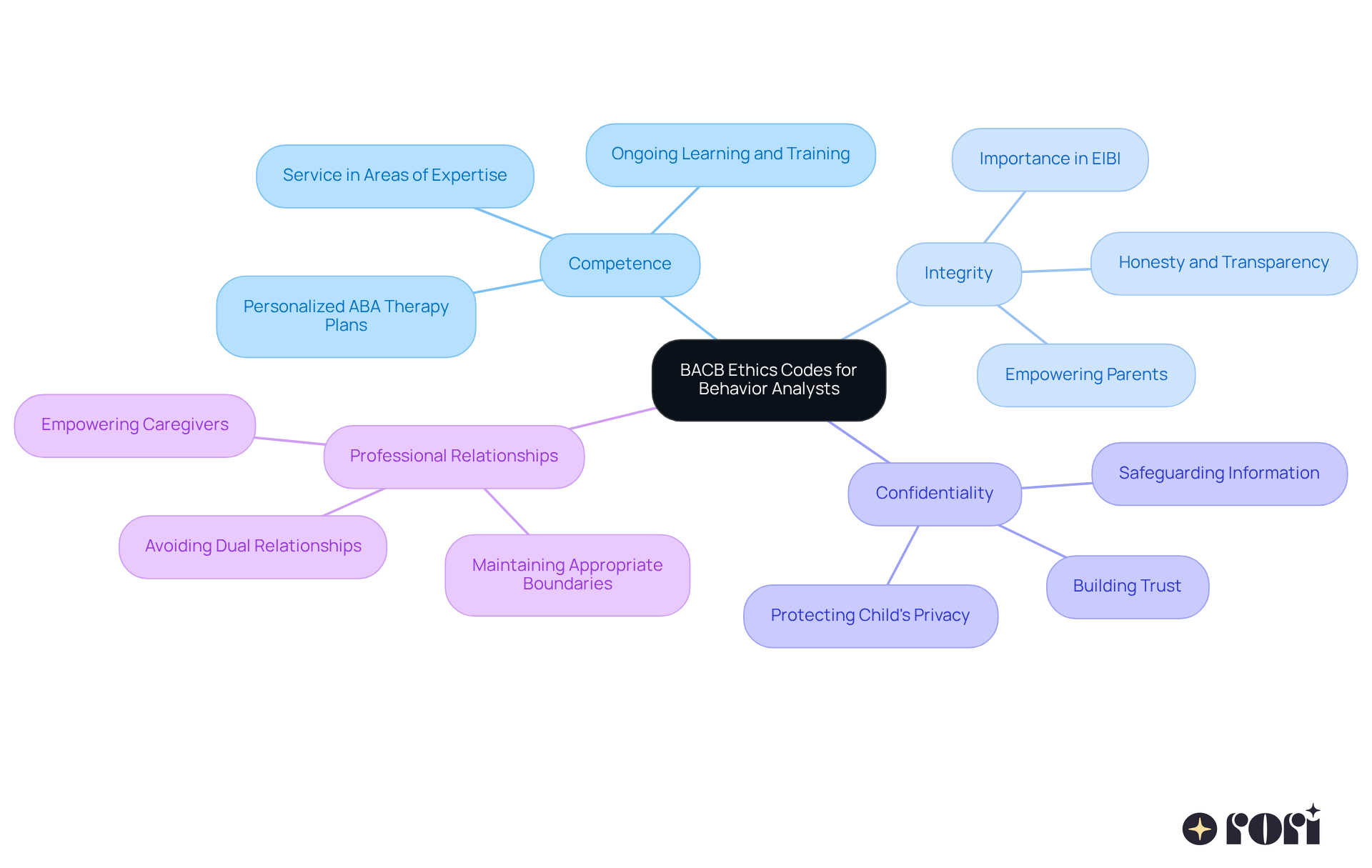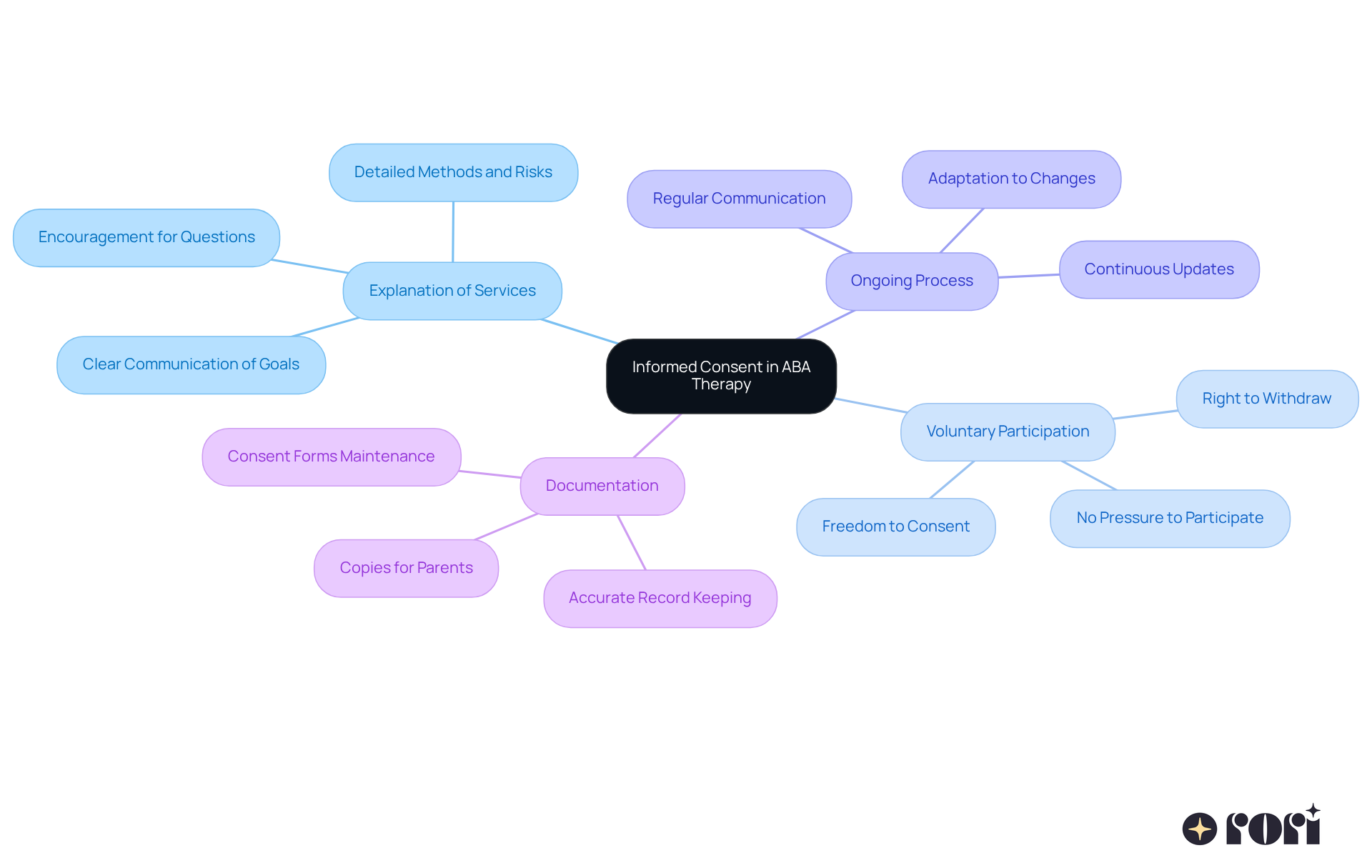Understanding ethics in BCBA is so important for parents! It’s all about key principles like beneficence, non-maleficence, autonomy, and justice. These principles help behavior analysts focus on what truly matters: the well-being of their clients.
Imagine how these ethical guidelines can create a strong partnership between parents and practitioners. When everyone’s on the same page, it really boosts the effectiveness of autism care. Informed consent and tailored interventions become the norm, respecting each child’s unique needs.
Let’s explore this together! By understanding these ethics, you’re not just gaining knowledge; you’re also taking an active role in your child’s care. We’re here to help you every step of the way!
Navigating the world of autism care can feel overwhelming for parents, and understanding the ethical landscape of behavior analysis is key. With principles like beneficence, non-maleficence, autonomy, and justice guiding the way, you can ensure that your child's treatment is not just effective but also respectful and supportive.
But how can you truly engage with these ethical guidelines? How can you advocate for your child's needs while building a positive relationship with treatment professionals? 🤔 This article dives into the essential ethical considerations that empower you as a parent in the realm of behavior analysis. Together, we’ll explore the tools you need to enhance your child's care experience. Let’s explore this together!
When discussing ethics BCBA in analytic conduct, there are four key principles that really guide us: beneficence, non-maleficence, autonomy, and justice. These principles help behavior professionals prioritize the well-being of their clients, ensuring that every decision made is in the best interest of those they serve.
Beneficence: This principle is all about acting in the best interest of young individuals. Behavior specialists are committed to creating positive outcomes and enhancing the quality of life for those with autism. Research shows that kids who participate in extensive ABA programs not only retain their skills but often improve even after the program ends. This really highlights how important beneficence is in autism care!
Non-maleficence: It’s crucial for behavior analysts to avoid causing harm. This means carefully assessing any intervention or strategy to ensure it won’t negatively affect a child’s emotional or physical well-being. Ethics BCBA remind practitioners to consistently reflect on their actions, fostering a safe and supportive therapeutic environment.
Autonomy: Respecting the autonomy of clients and their families is vital. Parents should be actively involved in the decision-making process regarding their child’s care. By incorporating their values and preferences into care plans, families feel empowered, and this collaboration can lead to better treatment outcomes. After all, when parents are engaged, kids often see improvements in communication and social skills!
Justice: This principle is all about fairness and equality in service provision. Every young person deserves access to high-quality analysis services, no matter their background. Ethics BCBA dictate that ethical practices in ABA therapy ensure that interventions are tailored to meet each individual’s unique needs, promoting inclusivity and respect for diversity.
By understanding these fundamental ethical principles, parents can connect more effectively with their child’s treatment professionals. This not only ensures that care is efficient but also aligns with ethics BCBA. Building this understanding fosters a trusting relationship, which is so important for achieving successful outcomes in autism care.
Let’s explore this together! If you have any thoughts or experiences to share, we’d love to hear from you!

The Behavior Specialist Certification Board (BACB) has established important ethics BCBA codes that practitioners need to follow. These codes serve as essential guidelines for ethical practice and professional integrity according to ethics bcba. As a parent, it’s good to know about these key components:
Competence: Behavior professionals should only provide services in their areas of expertise. This means they need to keep learning and training to stay updated on the best practices in autism care. Don’t hesitate to ask your specialist about their qualifications and experience! Competence is crucial for achieving successful results. Plus, the flexibility of ABA therapy allows for personalized plans based on progress reports and your active involvement, ensuring that your child’s unique needs are met.
Integrity: Honesty and transparency are must-haves for behavior analysts. They should give you accurate information about treatment options and expected outcomes. You should feel empowered to ask questions and seek clarification about your child’s care. After all, being fully informed helps you engage in the decision-making process. It’s worth noting that "The demand for BCBAs has seen astronomical growth," which emphasizes the importance of integrity in this rapidly changing field. This integrity is especially vital as you participate in early intensive behavioral intervention (EIBI), which has shown to significantly enhance learning, verbal, and social skills in individuals with autism.
Confidentiality: Protecting your child’s privacy is a core ethical obligation. Behavior specialists must safeguard all information related to your child and their treatment. It’s important for you to know how your child’s data will be used and shared, as this reinforces trust in the therapeutic relationship.
Professional Relationships: Maintaining appropriate boundaries is key in the relationships between practitioners and their clients. This includes steering clear of dual relationships that could cloud professional judgment. As a parent, recognizing the importance of a professional connection with your child’s treatment specialist can foster a supportive and effective therapeutic environment. Empowering caregivers with ABA principles and strategies boosts your ability to support your child’s behavioral goals through active involvement and data collection.
By familiarizing yourself with the ethics BCBA codes, you can better understand the standards that guide analysts and advocate effectively for your child’s needs. This way, you can ensure they receive the highest quality of care. For instance, case studies have shown that ABA therapy significantly improves daily living skills, showcasing the effectiveness of ethical practices in action. Understanding these principles not only empowers you but also enhances the overall quality of care your child receives. Let’s explore this together!

Informed consent is such an important part of ethics BCBA in ethical practice within behavior analysis. It ensures that parents are fully briefed about the care their child will receive. Let’s break down some essential aspects of informed consent:
Explanation of Services: Behavior professionals need to clearly explain the proposed interventions. This means detailing the goals, methods, and potential risks involved. Parents should feel encouraged to ask questions and seek clarification so they can fully understand the process.
Voluntary Participation: Consent should always be given freely, without any pressure. It’s crucial for parents to know they have the right to refuse or withdraw consent at any time, without facing any repercussions.
Ongoing Process: Remember, informed consent isn’t just a one-time thing; it’s an ongoing conversation. Behavior specialists should keep parents updated about their child’s progress and any changes to the care strategy. This way, consent remains informed throughout the therapy process.
Documentation: Keeping accurate records of consent is key. Behavior analysts should maintain documentation of consent forms and conversations about care options. Parents are encouraged to ask for copies of these documents for their own records.
By understanding the significance of informed consent, parents can actively engage in their child’s treatment while adhering to ethics bcba. This not only helps uphold their rights but also fosters a collaborative therapeutic relationship. Let’s explore this together! We’re here to help you every step of the way!

Understanding the ethical framework around behavior analysis is so important for parents navigating the complexities of autism care. By getting a handle on key principles like beneficence, non-maleficence, autonomy, and justice, parents can really advocate for their child's best interests. Plus, it helps build collaborative relationships with treatment professionals. These ethical guidelines not only prioritize the well-being of children but also empower families to take an active role in their care.
This article dives into the essential components of ethics in behavior analysis, including the BACB ethics codes. These codes emphasize:
When parents familiarize themselves with these standards, they can ensure their child receives high-quality, individualized care while promoting transparency and trust in the therapeutic environment. And let’s not forget the significance of informed consent, which highlights the need for open communication between families and behavior analysts. This really reinforces the collaborative nature of effective treatment.
Ultimately, understanding and applying ethical principles in behavior analysis isn’t just about ticking boxes; it’s about creating a supportive framework that enhances the quality of care for children with autism. Parents are encouraged to engage actively in discussions with their child's behavior analysts, ask questions, and advocate for their child's needs. By prioritizing ethics in behavior analysis, families can contribute to more successful outcomes and a brighter future for their children. Let’s explore this together!
What are the four key ethical principles in behavior analysis?
The four key ethical principles in behavior analysis are beneficence, non-maleficence, autonomy, and justice.
What does the principle of beneficence entail?
Beneficence involves acting in the best interest of young individuals, focusing on creating positive outcomes and enhancing the quality of life for those with autism.
How does non-maleficence apply to behavior analysis?
Non-maleficence emphasizes the importance of avoiding harm, requiring behavior analysts to assess interventions carefully to ensure they do not negatively impact a child's emotional or physical well-being.
Why is autonomy important in behavior analysis?
Autonomy is vital because it involves respecting the decisions of clients and their families. Engaging parents in the decision-making process leads to better treatment outcomes and empowers families.
What does the principle of justice signify in the context of behavior analysis?
Justice signifies fairness and equality in service provision, ensuring that every young person has access to high-quality analysis services, regardless of their background.
How can understanding these ethical principles benefit parents?
Understanding these ethical principles helps parents connect more effectively with their child’s treatment professionals, fostering trust and ensuring that care aligns with ethical standards, ultimately leading to better outcomes in autism care.